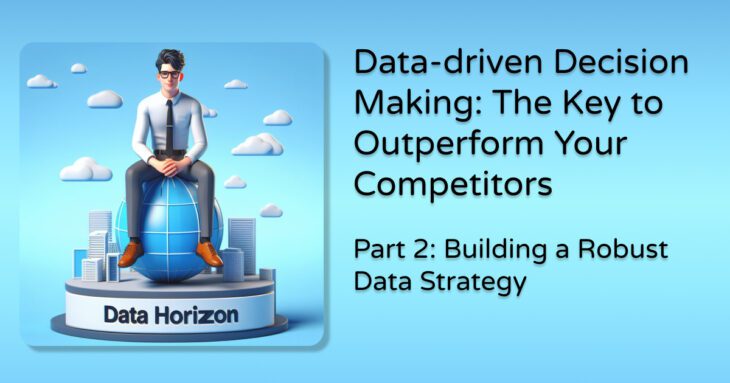Greetings to our esteemed readers! Having navigated the foundational concepts of data-driven decision-making in our previous installment, it’s time to delve deeper into the cornerstone of this transformative journey: building a robust data strategy. As we continue to enlighten and engage business executives, data professionals, and enthusiasts alike, let’s unravel the intricacies of crafting a data strategy tailored for success.
Identifying Business Objectives and KPIs
The Strategic Imperative
Embarking on a data-driven odyssey without a clear roadmap is akin to sailing uncharted waters without a compass. Therefore, the first step in building a robust data strategy involves identifying clear business objectives and key performance indicators (KPIs) that align with your organizational goals. Whether it’s enhancing customer engagement, optimizing operational efficiency, or driving revenue growth, defining measurable objectives sets the stage for informed decision-making and strategic alignment.
The Role of KPIs
Key Performance Indicators (KPIs) serve as the navigational beacons in your data strategy, providing quantifiable metrics to evaluate performance, monitor progress, and facilitate continuous improvement. By selecting relevant KPIs that reflect your business objectives, you can focus your data analytics efforts on extracting actionable insights that drive meaningful outcomes.
Data Collection, Storage, and Management
The Data Deluge
In today’s digital ecosystem, data proliferates at an unprecedented rate, encompassing a myriad of sources, formats, and structures. To harness the potential of this vast reservoir of information, organizations must establish robust data collection mechanisms that capture relevant data points across various touchpoints, channels, and interactions.
Storage and Management
Once collected, the next challenge lies in storing and managing data effectively to ensure accessibility, security, and compliance. Implementing a scalable data storage infrastructure, leveraging cloud-based solutions, and adopting best practices in data governance and management are essential components of a robust data strategy. By establishing data quality standards, ensuring data integrity, and implementing rigorous security protocols, organizations can mitigate risks and unlock the full potential of their data assets.
Ensuring Data Quality and Integrity
The Pillars of Trust
Quality and integrity are the cornerstones of a reliable data strategy, underpinning the credibility, accuracy, and relevance of insights derived from data analytics. By implementing data validation processes, conducting regular audits, and establishing data quality metrics, organizations can build trust in their data assets and ensure consistency across various business functions and processes.
As we navigate the intricate landscape of building a robust data strategy, it becomes increasingly evident that success hinges on aligning business objectives with actionable insights, establishing robust data collection, storage, and management practices, and ensuring data quality and integrity. By embracing these foundational principles, organizations can lay the groundwork for a data-driven culture that fosters innovation, drives growth, and enables sustainable success.
If you need help in building a data strategy, Data Horizon can help you provide tailored data strategies aligned with your business goals, ensuring scalability and sustainability. Stay tuned for the next installment of this enlightening series, where we will explore the transformative power of data analytics in transforming raw data into actionable insights, driving informed decision-making, and outperforming competitors in today’s competitive marketplace.
